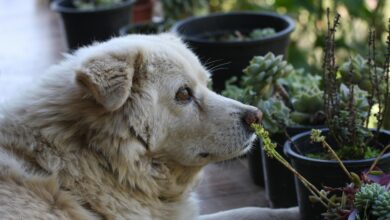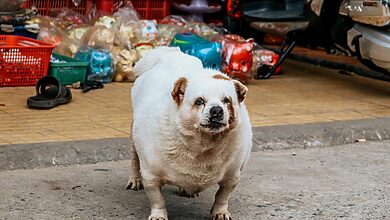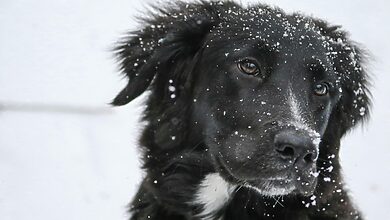Maintaining a Healthy Cat Coat: Cat Diet and Nutrition Tips
Maintaining a healthy coat. A cat’s coat is more than just fur; it’s a reflection of their overall health and well-being. A shiny, soft coat is a sign that your feline friend is thriving. In this comprehensive guide, we’ll delve into the essential cat diet and nutrition tips to help you keep your cat’s coat healthy and beautiful.
Table of contents
Maintaining a Healthy Coat
Why Cat Coat Health Matters
Before we explore diet and nutrition, let’s understand why a cat’s coat health is so vital:
1. Skin Protection: A cat’s coat acts as a barrier against external elements, protecting their delicate skin from sunburn, insect bites, and injuries.
2. Temperature Regulation: It helps regulate body temperature, keeping your cat warm in the winter and cool in the summer.
3. Visual Indicator: The condition of your cat’s coat can serve as an early indicator of underlying health issues, such as allergies, dietary deficiencies, or parasites.
Cat Diet and Nutrition Tips for a Healthy Coat
To ensure your cat’s coat remains lustrous and healthy, consider the following dietary and nutritional tips:
1. Protein Is Key
High-Quality Protein: Cats are obligate carnivores, which means they require a diet rich in animal-based proteins. Look for cat foods with high-quality meat sources like chicken, turkey, or fish.
Essential Amino Acids: These are crucial for maintaining the structural integrity of your cat’s fur. Ensure the food you choose contains essential amino acids like taurine and arginine.
Tip: Avoid plant-based proteins as the primary source, as they may not provide the necessary amino acids for a healthy coat.
2. Omega-3 Fatty Acids
Skin and coat Health: Omega-3 fatty acids, found in fish oil, are known to promote healthy skin and a shiny coat in cats. Look for cat food with added omega-3s or consider supplementing their diet.
Anti-Inflammatory: Omega-3s also have anti-inflammatory properties that can help with skin issues like allergies.
Tip: Consult your veterinarian for the appropriate dosage when adding omega-3 supplements to your cat’s diet.
3. Vitamins and Minerals
Balanced Diet: Ensure your cat’s diet includes essential vitamins and minerals, particularly vitamin A and zinc. These play a crucial role in skin and coat health.
Biotin: Biotin, a B-vitamin, is essential for maintaining healthy fur. Some cat foods contain added biotin, but you can also find biotin supplements for cats.
Tip: Read the ingredient list on cat food labels to ensure they include necessary vitamins and minerals.
4. Hydration
Proper Hydration: Adequate water intake is essential for overall health, including skin and coat hydration. Make sure your cat has access to fresh water at all times.
Wet Food: Wet cat food can contribute to your cat’s hydration and often contains higher moisture content than dry kibble.
Tip: If your cat is averse to drinking water, consider a cat water fountain, which may encourage them to drink more.
5. Common Skin and Coat Problems
Allergies: If your cat exhibits signs of allergies like excessive scratching or hair loss, consult your veterinarian to identify and address the allergen.
Parasites: Regular flea and tick prevention are essential to prevent infestations that can harm your cat’s skin and coat.
Dry Skin: If your cat experiences dry, flaky skin, consider a humidifier in their living space, and discuss dietary changes with your vet.
6. Choose the Right Cat Food
Consult Your Vet: Your veterinarian can recommend cat food that suits your cat’s individual needs, whether they have allergies, sensitivities, or dietary restrictions.
Transition Slowly: When changing your cat’s diet, do so gradually to prevent digestive upset. Mix a small amount of the new food with their current food and increase the ratio over several days.
Picky Eaters: If you have a finicky feline, experiment with different flavors and textures of cat food to find what they enjoy.
7. DIY Cat Food Recipes
Supplementary Treats: Consider making homemade cat treats or food to supplement your cat’s diet with essential nutrients. Ensure the recipes are balanced and approved for feline consumption.
Tip: Always consult your vet or a veterinary nutritionist before introducing homemade cat food to your pet’s diet.
Maintaining a Healthy Coat
A healthy coat is not just about aesthetics; it’s a reflection of your cat’s overall health. By providing a well-balanced diet, including high-quality protein, essential fatty acids, vitamins, and minerals, you can help your feline companion maintain a beautiful, shiny coat. Regular veterinary check-ups and consulting with a veterinarian or nutritionist will ensure your cat’s dietary needs are met for a lifetime of coat health.







